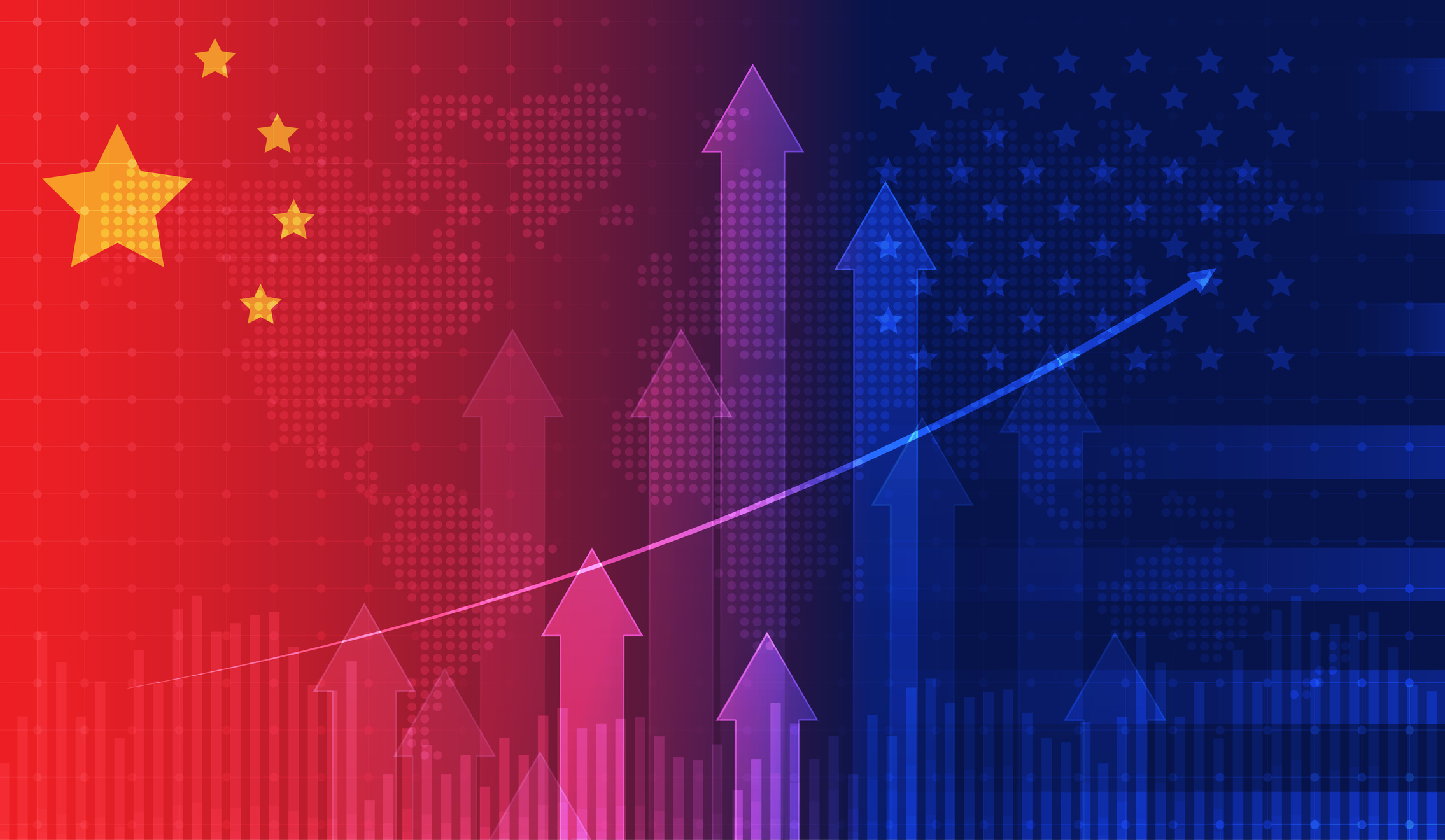The United States and China are drawing up
battle lines
.
Washington and Beijing are rapidly putting economic and diplomatic earthworks in place and
developing military weaponry
for a confrontation that has already begun. We are staring it right in the face.
Superpower rivalry from China started to impinge seriously on U.S.
public awareness
only in recent years. But because this awareness is so new, it is difficult to gauge what U.S. responses could secure public support. These will also change as the tides of opinion ebb and flow, affected by a multitude of other political issues and events.
The most important question is what form the U.S.-China confrontation will take and how
serious and lethal
it will become. One hesitates to venture such an opinion, but one cannot rule out war. That’s why there’s
a race
for hypersonic weapons, among other things. Both sides are making shows of military force, for example in the South China Sea, and each side will continue to try to make the other back down.
My pessimistic assessment is that when a really decisive test comes, for example by China invading Taiwan, America will blink first and then be overtaken as the world’s preeminent power by its most populous nation. China will also have the bigger economy within about a decade.
On Feb. 4, the House of Representatives passed the America COMPETES Act to help businesses stand up against China’s centrally directed economy. Simultaneously, the Chinese and Russian leaders, President Xi Jinping and President Vladimir Putin, announced an explicit joint challenge to the West. They have just agreed on the closest strategic cooperation between their two tyrannies since they split early in the Cold War. Now, President Joe Biden is readying a broad economic strategy for the Asia Pacific to confront China as it ramps up domination of its near neighbors.
These developments come amid a sharp turn of U.S. public opinion against China. Five years ago, more Americans had a favorable view of China than had an unfavorable view. Now, unfavorable opinions are about
four times
as likely as favorable ones.
It is here that the intensely important question arises of how readily unfavorable opinion will translate into public readiness to make sacrifices to confront China. Has China already ensured feeble resistance by making the U.S. economy and American consumer tastes so dependent on its manufactures?
Bernard Lewis, the great scholar of Islam, made a fascinating, relevant point shortly after Iraq invaded Kuwait in 1990. He explained why Islamists hated the West and America so much more than they hated the Soviet Union. Part of the answer was America’s then staunch support for Israel, but although that issue had a strategic and visceral impact on Muslim thinking, there was another potent element. Radical Islamists loathed the Soviet Union as a materialist and universalist empire, but they did not see it as such a threat. Their faith, influenced by Manichaeism, put the USSR in the House of War in confrontation with the House of God, but the threat it posed was only a military one. The Soviet Union could not change hearts and minds. The communist system held no appeal to Muslims. There was nothing attractive in its bleak inability to meet the economic needs and desires of its subjugated people.
But the U.S., by contrast, was immensely appealing. Muslims everywhere, young ones in particular, found the wealth and success, the promise and products of the West, hugely enticing, especially its cultural products. They bought and enjoyed its music, videos, movies, and TV shows. The opulence and comfort of the West was obvious and hugely magnetic. It was pulling Muslims away from the ascetic deprivations central to the Islamist agenda. Thus, America was enemy No. 1.
This is relevant today in our new Cold War because China has what a lot of Americans want. It is not just an increasing military threat but is also the dominant provider of what we buy every day on Main Street. Chinese products account for more than 1 out of every $5 we spend on imports. Our electrical machinery, furniture, and children’s toys come as often as not from China, as do our outdoor equipment, plastics, and so much else.
Confronting China will involve Americans biting the hand that has been feeding them for decades. That is not an argument for avoiding conflict, but it is a measure of how painful the breach will be.
Just as Beijing has hooked a large number of blighted Americans on its illegal drug supplies, fentanyl in particular, so too has it hooked many more of us on its legal manufactures. Can we kick our Chinese retail habit?






